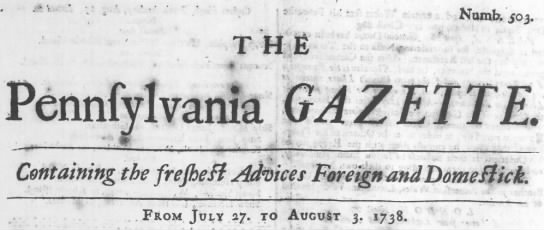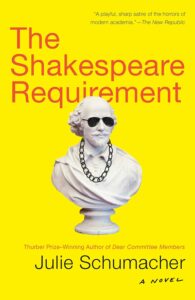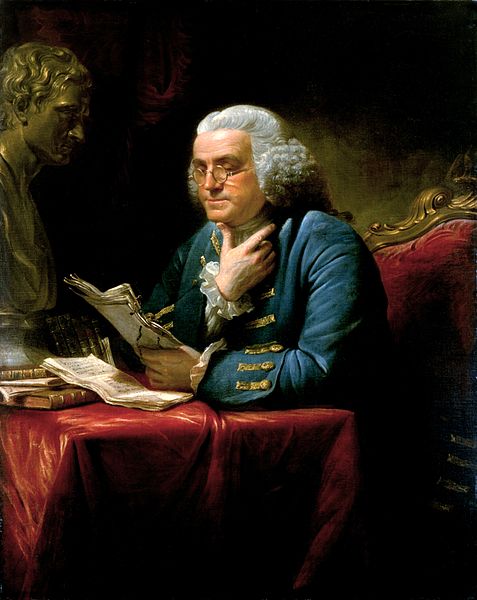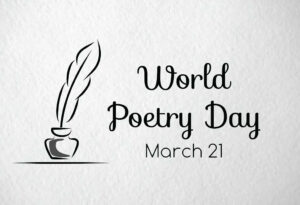 Hello again. It’s been 8 months since I’ve written in this space (not counting two editorials), so it’s good to be back in between podcasts and other duties as assigned. Let’s dive right in, shall we?
Hello again. It’s been 8 months since I’ve written in this space (not counting two editorials), so it’s good to be back in between podcasts and other duties as assigned. Let’s dive right in, shall we?
Baseball, and Trying to Watch Baseball: The Beloved Braves got off to a hot start, despite losing Spencer Strider for the year, but at this moment they’ve cooled off considerably and let the Hated Phillies (HPs) catch and pass them in the standings. We’re now looking up at the HPs from second place. I doubt that will hold for the season, but if it does, I’m fine with that. Maybe we can reverse the trend from the last two years and go into the postseason as a Wild Card team, make the HPs sit around for a week as their reward for winning the division, and then beat them in the best-of-five second round. Between now and then, we will pray to Hermes, the Greek god of coaxial cable, that Comcast and Bally Sports can work out their problems so that long-suffering fans can actually watch the team again. More than any other league, Major League Baseball makes it incredibly difficult to actually watch the sport. From regional sports networks like Bally that are forever fighting with carriers Comcast and DirecTV, to Friday games on Apple TV, Saturday games on Fox or FS1, Sunday games on ESPN, and whatever games aren’t blacked-out in your region on the expensive MLB app, baseball can be harder to find than Uncle Pootsie’s dentures. Of course, if the Braves continue to play like they did in Los Angeles last weekend, we’ll pay Comcast to keep them off the air and set fire to our remotes in protest. Stay tuned.
Books, Books, and Books: If you’ve been listening to the recent Off the Deaton Path podcasts—and of course you have—then you know I’ve read some great books this year: Michael Thurmond’s new take on Georgia founder James Oglethorpe, Jerry Grillo’s biography of Johnny Mize, the Big Cat, David Henkin’s fascinating exploration of the origins of The Week, Pulitzer-Prize winner David Blight’s uncovering the unexpected history of Yale and Slavery, John O’Connor’s Secret History of Bigfoot, Clayton Trutor’s award-winning Loserville, and Elizabeth Varon’s pathbreaking biography of Confederate general James Longstreet.
 What else have I been reading in 2024? The history of the British monarchy fascinates me—as does the death of famous people—and Dr. Suzie Edge has become a Tik-Tok star because of her incredible knowledge on the history of the Royals and all the horrible ways they’ve died. Check out her recent Mortal Monarchs: 1,000 Years of Royal Deaths.
What else have I been reading in 2024? The history of the British monarchy fascinates me—as does the death of famous people—and Dr. Suzie Edge has become a Tik-Tok star because of her incredible knowledge on the history of the Royals and all the horrible ways they’ve died. Check out her recent Mortal Monarchs: 1,000 Years of Royal Deaths.
Staying with the theme, if, like me, you’ve always wanted to get a peek behind the curtain at your local funeral home—or even if you haven’t—I highly recommend Caitlin Doughty’s Smoke Gets in Your Eyes and Other Lessons From the Crematory. Yes, it’s every bit as gruesome as you’d think but endlessly fascinating.
Speaking of gruesome, who knew that Joseph Stalin, in addition to being one of the most vicious tyrants in world history, was also a voracious reader? And he wrote in his books, many of which have survived and are preserved in Moscow. It’s all detailed in Geoffrey Roberts’s Stalin’s Library: A Dictator and His Books.
Speaking of Stalin, I also read The Groves of Academe, Mary McCarthy’s 1952 Joseph McCarthy-era campus novel that a recent New York Times article proclaimed as the novel that explains the current crisis in American higher education. To quote from the NYT: “Every squawking buzzard in American public life — every quarrel about race, class, sex, foreign policy, pronoun usage — takes wing from or comes home to roost on campus. The crisis is permanent, structural, a feature of the conflicting expectations we impose on our schools. There is a vast body of scholarship to explain why this is so. Academia is a serious place, and it takes itself seriously. But it is also, like Hollywood or Washington, profoundly ridiculous — the kind of symbolically overburdened, sociologically peculiar environment that can only really be understood through satire. Luckily, we have an entire literary subgenre, the campus novel, to fulfill that requirement.”
McCarthy’s book is one very notable contribution to that subgenre and it captures the anti-Communist frenzy of the early 50s quite well. My favorite campus novel remains 1954’s Lucky Jim by Kinglsey Amis.
 A strong runner-up, however, also read recently, has to be Julie Schumacher’s hilariously funny Dear Committee Trilogy: Dear Committee Members, The Shakespeare Requirement, and The English Experience. The trilogy follows the travails of Jason Fitger, a sad sack, rumpled aging professor and chair of creative writing and literature at Payne University, “a small and not very distinguished liberal arts college in the Midwest.” For all that our college campuses are ground zero for the country’s culture wars, Schumacher’s trio of books will give you a cringe-worthy too-real-for-comfort look at the smallness and silliness of cut-throat university politics and the personalities that engage in them.
A strong runner-up, however, also read recently, has to be Julie Schumacher’s hilariously funny Dear Committee Trilogy: Dear Committee Members, The Shakespeare Requirement, and The English Experience. The trilogy follows the travails of Jason Fitger, a sad sack, rumpled aging professor and chair of creative writing and literature at Payne University, “a small and not very distinguished liberal arts college in the Midwest.” For all that our college campuses are ground zero for the country’s culture wars, Schumacher’s trio of books will give you a cringe-worthy too-real-for-comfort look at the smallness and silliness of cut-throat university politics and the personalities that engage in them.
Speaking of campus politics in popular culture, check out Lucky Hank, an 8-part TV series that aired on AMC last spring and again this winter. It starred Bob Odenkirk (Breaking Bad, Better Caul Saul) as Hank Devereaux, the English department chair at a small Pennsylvania college, based on Richard Russo’s 1997 novel, Straight Man. The casting was spot-on (watch for Tom Bower, who played Mary Ellen Walton’s husband Kirk on The Waltons 45 years ago, as Hank Devereux Sr.) and the acting brilliant, perfectly capturing the personalities at play in the modern academy. I haven’t read Russo’s book, so I’ve no idea how faithful the show was to it, but we’ll save the subject of turning books into other mediums—or using another author’s book as the basis for your own—for another blog post.
 Okay, maybe just a little bit about books adapted into movies. I recently re-read Richard Adams’s Watership Down, first published in 1972 and then turned into a 1978 animated film, a 1999-2001 TV series, and a 2018 animated re-boot. I haven’t watched any of them and probably won’t, because I love the book too much as a book to have it filtered through another lens. I first read this novel in Ms. Hewitt’s 11th-grade literature class at South Gwinnett High School in 1981 (God bless you, Ms. Hewitt, wherever you are), and re-read it two years later after my first year at UGA. The novel had a huge impact on me at that time, and I’ve hesitated to re-read it as a full-blown adult for fear I would find the whole story disappointing and not what I remembered. Turns out, the opposite is true—the book spoke to me much more now, 40+ years later, than it did then, sometimes in profoundly moving ways. This is the power of re-reading: the book hasn’t changed, but you have, and what you bring to it has altered, matured (hopefully), and deepened with the passage of time. In all likelihood, I’ll read it again in 10 years, if not before.
Okay, maybe just a little bit about books adapted into movies. I recently re-read Richard Adams’s Watership Down, first published in 1972 and then turned into a 1978 animated film, a 1999-2001 TV series, and a 2018 animated re-boot. I haven’t watched any of them and probably won’t, because I love the book too much as a book to have it filtered through another lens. I first read this novel in Ms. Hewitt’s 11th-grade literature class at South Gwinnett High School in 1981 (God bless you, Ms. Hewitt, wherever you are), and re-read it two years later after my first year at UGA. The novel had a huge impact on me at that time, and I’ve hesitated to re-read it as a full-blown adult for fear I would find the whole story disappointing and not what I remembered. Turns out, the opposite is true—the book spoke to me much more now, 40+ years later, than it did then, sometimes in profoundly moving ways. This is the power of re-reading: the book hasn’t changed, but you have, and what you bring to it has altered, matured (hopefully), and deepened with the passage of time. In all likelihood, I’ll read it again in 10 years, if not before.
 Great Books: Just recently I finished reading Montaigne’s Essays. Michel de Montaigne was the famous 16th-century Frenchman who practically invented the literary form we know today as the essay. Writing in his famous tower almost 450 years ago, Montaigne wrote mainly about himself—his mantra being “What do I know?”—and in so doing he wrote about all of us as well. Sarah Bakewell, in her award-winning 2012 book, How to Live, or A Life of Montaigne In One Question and Twenty Attempts at an Answer described it this way: “The twenty-first century is full of people who are full of themselves. . . thousands of individuals fascinated by their own personalities and shouting for attention. They go on about themselves; they diarize and chat, and upload photographs of everything they do. Uninhibitedly extrovert, they also look inward as never before. Even as bloggers and networkers delve into their private experience, they communicate with their fellow humans in a shared festival of the self. . .By describing what makes them different from anyone else, the contributors reveal what they share with everyone else: the experience of being human. This idea—writing about oneself to create a mirror in which other people recognize their own humanity—has not existed forever. It had to be invented….it can be traced to one person: Michel de Montaigne.”
Great Books: Just recently I finished reading Montaigne’s Essays. Michel de Montaigne was the famous 16th-century Frenchman who practically invented the literary form we know today as the essay. Writing in his famous tower almost 450 years ago, Montaigne wrote mainly about himself—his mantra being “What do I know?”—and in so doing he wrote about all of us as well. Sarah Bakewell, in her award-winning 2012 book, How to Live, or A Life of Montaigne In One Question and Twenty Attempts at an Answer described it this way: “The twenty-first century is full of people who are full of themselves. . . thousands of individuals fascinated by their own personalities and shouting for attention. They go on about themselves; they diarize and chat, and upload photographs of everything they do. Uninhibitedly extrovert, they also look inward as never before. Even as bloggers and networkers delve into their private experience, they communicate with their fellow humans in a shared festival of the self. . .By describing what makes them different from anyone else, the contributors reveal what they share with everyone else: the experience of being human. This idea—writing about oneself to create a mirror in which other people recognize their own humanity—has not existed forever. It had to be invented….it can be traced to one person: Michel de Montaigne.”
The essays are at once easy and difficult to describe. Montaigne set about examining his interior life in 107 essays that have titles like “Of Friendship,” “Of Liars,” “Of the power of the imagination,” “Of drunkenness,” “Of books.” As Clifton Fadiman described them in The Lifetime Reading Plan, “They are formless, they rarely stick to the announced subject.” In fact, Montaigne may start off writing about the subject in the title of the essay, and then for the next dozen pages he may write about body odors, strange people who turn up at his house, the way his servants talk, or how he can’t eat certain foods. One essay that is ostensibly about the Roman poet Virgil discusses the size of Montaigne’s sexual organs and the pros and cons of marriage. They are literally all over the map, and loaded with quotations from his other reading, usually the ancient Greeks and Romans. Fadiman again: “Montaigne is not only the first informal essayist but incomparably the best. He writes as if he were continually enjoying himself, his weaknesses and oddities and stupidities no less than his virtues.”
All of which is why he’s read as avidly today as he was in his own time. The Essays went through multiple editions in French in Montaigne’s own lifetime and were first translated into English by John Florio in 1603. Readers have included Francis Bacon, William Shakespeare, Lord Byron, William Makepeace Thackeray, Ralph Waldo Emerson, Virginia Woolf, T.S. Eliot, and Aldous Huxley. Quoting the Encyclopedia Britannica: “Voltaire and Denis Diderot saw in him a precursor of the free thought of the Enlightenment. Jean-Jacques Rousseau rightly considered Montaigne the master and the model of the self-portrait. Flaubert kept the Essays on his bedside table and recognized in Montaigne an alter ego.” Many others still do right up to the present day.
Here are some of his bon mots:
“I used to mark the burdensome and gloomy days as extraordinary. Those are now my ordinary ones; the extraordinary are the fine serene ones.”
“It is a rare life that remains well ordered even in private.”
“I set little value on my opinions, but I set just as little on those of others.”
“Old age puts more wrinkles in our minds than on our faces.”
“I am all in the open and in full view, born for company and friendship.”
“It is impossible to discuss things in good faith with a fool.”
“If you do not know how to die, don’t worry. Nature will tell you what to do on the spot, fully and adequately. She will do this job perfectly for you, don’t bother your head about it.”
“If your doctor does not think it good for you to sleep, to drink wine, or to eat such-and-such a food, don’t worry; I’ll find you another who will not agree with him.”
“On the loftiest throne in the world we are still sitting on our own rump.”
I suggest Donald Frame’s translation, first published in 1958. The Essays are broken up into three “Books” that run to well over 800 pages. You need not read them from start to finish; as Fadiman noted, “you may wander about almost at will in Montaigne. He should be read as he wrote, unsystematically.” Alas, I’m too structured for that—I read one Book each year over the last three years, consuming the elephant in small bites.
However you decide to read him, I highly recommend making Montaigne and his Essays a part of your life, slowly, over a number of months or years. Consume him at your leisure, the way Fadiman suggests. You’ll discover, as so many others have over the last 400+ years, a kindred spirit who “appeals to that part of us more fascinated by the questions than the answers.”
Pulitzer Prizes: Finally, the 2024 Pulitzer Prizes were announced this week, and hurrahs are due to Director Lisa Bayer and the University of Georgia Press, publishers of this year’s winner for poetry, Tripas: Poems, by Brandon Som. Anytime a university press publishes a Pulitzer winner it’s a big deal, and when the winners are published by our good friends at UGA Press, it’s even better. Congratulations, one and all.
Stay safe, and until next time, thank you for reading.



